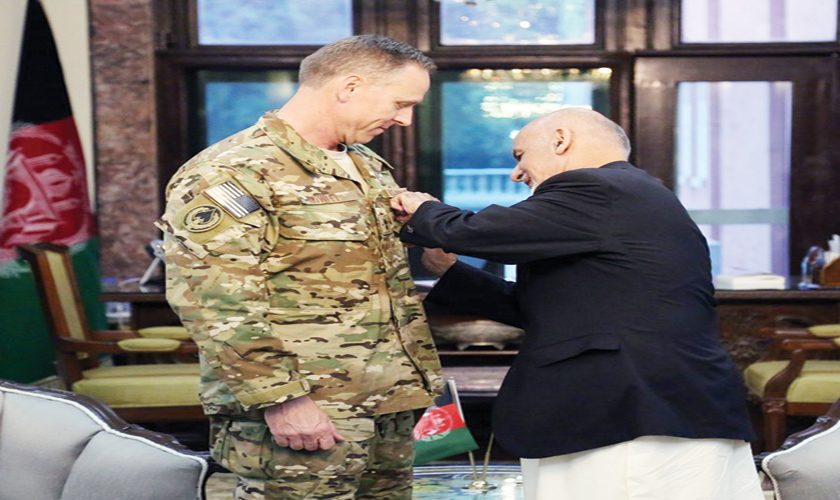Trump has bowed to the generals on Afghanistan
Trump has bowed to the generals on Afghanistan

There is no doubt President Donald Trump inherited a bad hand in Afghanistan. The longest war in US history is probably unwinnable. Russian, and before that British, military history said as much even before George W Bush invaded 16 years ago in the wake of the September 11 terrorist attacks on US soil.
And yet, predictably from the vantage point of the Oval office, Mr Trump has found the consequences of turning tail too grave to contemplate. To do so, as he said in a speech outlining his approach to Afghanistan on Monday, would “create a vacuum that terrorists, including Isis and al-Qaeda, would instantly fill”. It would be to repeat the mistake that the Obama administration made when it withdrew from Iraq prematurely in 2011, allowing Isis to capture territory that US and Iraqi soldiers had lost much blood to gain. From a domestic political perspective that prospect would be as untenable as launching another wholehearted surge.
So, having pledged on the campaign trail to end the war in Afghanistan and eschew such foreign entanglements in future, Mr Trump has heeded his general’s advice and performed an about turn. He did so with harsh warnings for Pakistan, which he accused of harbouring terrorists, conditional love for Afghanistan’s embattled government, and a vague plan to reinforce the 10,000 or so mostly special forces now on active duty to train and assist the Afghan army.
There is nothing in any of this that changes the terms or strategic circumstances of US involvement in Afghanistan in a significant way. These are all tactics that have been tried, tested and found wanting in the past. Mr Trump, however, framed his plans as undoing Barack Obama’s legacy. Unlike his predecessor he declined to set any timelines for the intervention. Nor would this be about nation building. It would be about killing and defeating terrorists, pure and simple.
He is right in one respect: previous deadlines for US withdrawal have only encouraged the Taliban to sit it out. As the generals like to say, “the US has the watches, the Taliban has the time”.
Mr Trump’s commitment to the long haul, however, came in almost the same breath as an expression of American impatience with this costly, open-ended engagement - a contradiction unlikely to convince US enemies that this is much more than bluster.
Mr Trump calls his strategy “principled realism”. But it is neither realistic - exhortations do not win wars - nor principled. A few thousand extra troops - the figure of 4,000 has been bandied around - and harsh rhetoric about Pakistan will change little on the ground. Worse, an appeal for India to get more involved pours fuel on the very rivalry between South Asia’s nuclear neighbours which has encouraged Islamabad’s duplicitousness in the past. Mr Trump may also find that poking Pakistan in the eye can only push it closer to Beijing.
The Afghan government controls barely more than half the country. The Taliban is resurgent, Isis has gained a foothold and recently Kabul has been victim to repeated suicide bombings. In the mix civilians are suffering more casualties now than at any point since Mr Obama launched his own shortlived surge in 2009.
For there to have been any hope of a successful counter insurgency, the US would have had to commit to the long haul and put more boots on the ground to win hearts and minds. Mr Trump has settled for another halfway house, one that maintains US engagement in Afghanistan in a holding pattern that is barely holding.
No comments